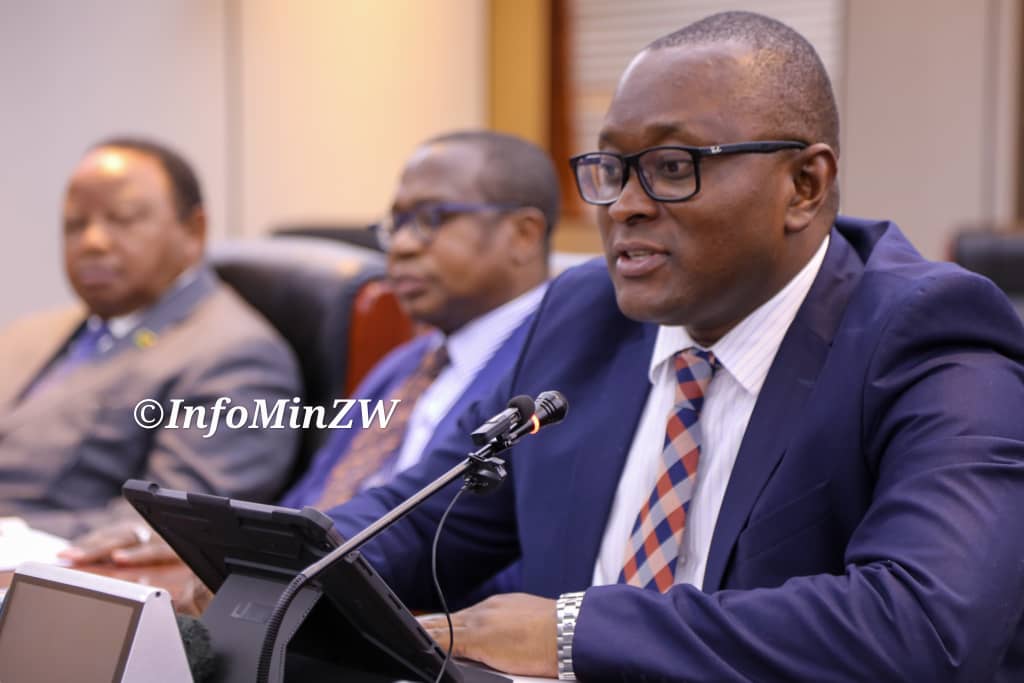In bid to protect wildlife, conservationists offer alternative livelihood sources
Share
Harare, (New Ziana) – “National laws often define many traditional hunters as poachers, causing much local anger,” Ishmael Chaukura, a community leader in wildlife-rich Mbire district in Mashonaland Central Province in northern Zimbabwe, says.
He continues: “I believe that national parks were created for the rich, who can still hunt in the parks, and do whatever they want with wildlife. We didn’t even know the parks existed until the authorities started sending our people to prison for hunting. That was when we found out we were not allowed to hunt the animals that were killing our livestock, and at times people. Why didn’t anyone ask us what we thought? Then we might not have had these challenges.”
Conservation and biodiversity are intricately linked to climate change.
Nature is people’s first line of defence against climate crisis, and climate-resilient biodiversity conservation must be part of the solution.There is therefore, a growing interest in enabling biodiversity to cope with climate change using protected areas.
Climate change adaptation has been defined as “human activities intended to minimize the adverse effects of climate change on human infrastructure and sensitive aspects of the natural environment.”
At the centre of the Lower Zambezi Mana Pools Transfrontier Conservation Area (LOZAMAP TFCA), is the Zambezi Valley Ecosystem. The Zambezi Valley suffers greatly from widespread effects of climate change and unsustainable exploitation of natural resources.
The Zambezi Valley falls within the United Nations’ Intergovernmental Panel on Climate Change Regional Climate Model 1, which shows that the mean annual temperature has warmed by 0.7 °C between 1901 and 2014 and will increase to 1.2 °C by 2039, while precipitation will decline by between three percent and 12 percent by 2040.
This biologically significant landscape is also important for the local communities that depend on the rich biodiversity of Zambezi Valley’s wetlands, forests, and wildlife for their economic well-being.
But, unchecked poaching, deforestation, and habitat loss and degradation threaten the landscape’s conservation areas, the species that inhabit them, and their capacity to support sustainable livelihoods for the local communities that depend on them. As a result, communities living along the Zambezi Valley basin, and the ecosystems, are left vulnerable and compromised.
But, how can Zimbabwe’s protected areas be managed sustainably?
This is what the African Wildlife Foundation(AWF) set to do in 2022. The
AWF and its partners support the Government of Zimbabwe and local communities, conservation non-governmental organizations, the private sector, and other key stakeholders in conserving the biodiversity of the Zambezi Valley.
AWF introduced the “UTARIRI” program, meaning “stewardship” (in the local Shona language) in 2022. AWF is actively implementing interventions primarily in Mbire and Muzarabani districts.
The three-year program is addressing climate, livelihoods, and biodiversity challenges in the Zambezi Valley with financial support from the Swedish International Development Cooperation(SIDA). By the conclusion of donor funding in 2025, it would have worked with 12,000 households. UTARIRI promotes community stewardship, sustainable livelihoods, water, and wildlife management in response to frequent cases of poaching, firewood extraction, and illicit wildlife trading.
AWF is working with the Zimbabwe Parks and Wildlife Management Authority and other key partners to strengthen the capacity and management of rangers throughout the landscape.The rangers employ non-lethal deterrents and raise awareness of biodiversity conservation, and are well-equipped to combat wildfires, protecting over 600 hectares of crop fields.
The organization connects communities with alternative income streams like sustainable agriculture, beekeeping, to build their capacity to protect their natural resources. When you support traditional conservation practices, such as law enforcement, that aim to protect and preserve wildlife and forests in these communities, it tends to pay off, says AWF.
AWF ’s holistic approach to biodiversity conservation in the Zambezi Valley provides a useful framework to work in other places, and builds on past agriculture and private sector work that focused on conservation friendly agriculture efforts in the region.
Initially, AWF’s focus in the Zambezi Valley was on conventional conservation, protecting and preserving biologically significant areas.
However, this approach has increasingly changed to integrate the economic well-being of the communities living around protected areas in the valley.
The Zimbabwean government had already established protected areas, and communities living near these areas are required by law to participate in conservation efforts while generating economic benefits. However, with their management capacity limited and external natural and human forces threatening the areas, it was difficult for the communities to successfully combat poaching and habitat loss on their own.
To address these challenges, AWF transitioned to an integrated approach that focuses on the needs of local communities by utilizing tools and resources already developed in agriculture, water, and artisanal fisheries sectors.
Instead of reinventing the wheel, the institution looked to successful programs in other sectors and learnt that reducing poverty and improving livelihoods are important to effective conservation efforts.
The program is helping to maintain and improve the populations of iconic wildlife species, especially the rhino, elephant and lion, which are poached for their horns, tusks and teeth, claws and bones respectively, and ensuring that important habitats are managed.
The benefits of AWF’s integrated approach to biodiversity conservation are already visible. Mbire communities face challenges co-existing with wildlife, such as elephants that wander onto their lands and destroy their crops, injuring and killing people.
This human-wildlife conflict has created difficulties in the community’s capacity, and acceptance to live alongside wildlife. To address this challenge, AWF engaged the local communities to plant chilli, a crop that repels elephants. This is a double-edged advantage as chilli offers a profitable source of income.
“Not much labour is needed, and animals don’t tamper with the plants. I am planting more chilli this season,” says Maxwell Makechemu, who is using the chilli pepper technology.
AWF is also providing training and equipment to help rangers collect and draw lessons from geo-spatial data.
Another facet involves empowering local people in Mbire district through apiculture training and positioning beekeeping as a sustainable livelihood and climate challenge initiative.
Modern enterprise training for over 300 individuals identifies nature-based alternatives to unsustainable activities, creating new climate-resilient income sources.
Furthermore, water supply improvements through borehole establishment mitigate human-wildlife conflict impacts.
For nearly three decades, local government officials, private sector partners, and other community members in Mbire have come together to radically change policies, behaviour, and mindsets related to sustainable fisheries management.
A Ngwena Fishing Cooperative representative in Mbire, Frank Mwanza, thanked AWF for assisting fishermen in securing access to a 15-kilometre stretch along the Zambezi River to conduct fishing activities. “We got boats, and fishermen continue to use infrastructure constructed by AWF funding and technical assistance,” Mwanza said.
The Zambezi River shoreline was once a hotspot for harmful fishing practices, such as over-fishing until the local community living there set to reverse this trend. With AWF support, they strengthened their management capacity and engaged other stakeholders, in managing the protected area.
The initiative also ensures a sustainable source of food and livelihoods for future generations by fighting illegal, unreported, and unregulated fishing.
“AWF’s efforts on natural resources management and human-wildlife conflict mitigation align with the country’s 10-year conservation strategy (2020-2030) which, among other result areas, seeks to promote social and economic development through building strong partnerships,” Olivia Mufute, AWF country director, Zimbabwe, said.
New Ziana









